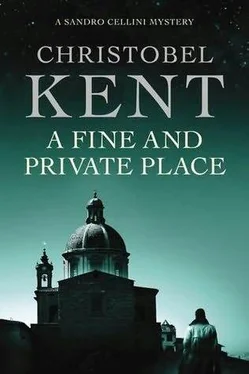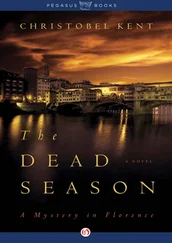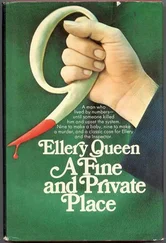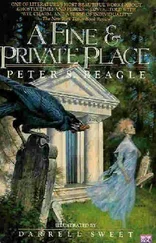Christobel Kent - A fine and private place
Здесь есть возможность читать онлайн «Christobel Kent - A fine and private place» весь текст электронной книги совершенно бесплатно (целиком полную версию без сокращений). В некоторых случаях можно слушать аудио, скачать через торрент в формате fb2 и присутствует краткое содержание. Год выпуска: 2011, ISBN: 2011, Издательство: Macmillan, Жанр: Криминальный детектив, на английском языке. Описание произведения, (предисловие) а так же отзывы посетителей доступны на портале библиотеки ЛибКат.
- Название:A fine and private place
- Автор:
- Издательство:Macmillan
- Жанр:
- Год:2011
- ISBN:9781429970808
- Рейтинг книги:4 / 5. Голосов: 1
-
Избранное:Добавить в избранное
- Отзывы:
-
Ваша оценка:
- 80
- 1
- 2
- 3
- 4
- 5
A fine and private place: краткое содержание, описание и аннотация
Предлагаем к чтению аннотацию, описание, краткое содержание или предисловие (зависит от того, что написал сам автор книги «A fine and private place»). Если вы не нашли необходимую информацию о книге — напишите в комментариях, мы постараемся отыскать её.
A fine and private place — читать онлайн бесплатно полную книгу (весь текст) целиком
Ниже представлен текст книги, разбитый по страницам. Система сохранения места последней прочитанной страницы, позволяет с удобством читать онлайн бесплатно книгу «A fine and private place», без необходимости каждый раз заново искать на чём Вы остановились. Поставьте закладку, и сможете в любой момент перейти на страницу, на которой закончили чтение.
Интервал:
Закладка:
Sitting quiet at the furthest end of the row of kitchen staff as Gallo talked to them in his soft, patient voice, Cate Giottone was still stunned.
For a moment or two after she had walked into the kitchen and slung her bag on the table and everyone suddenly stopped talking, Cate knew, they were really thinking whether they should tell her anything at all. Ginevra — the cook, sixty-five, rough-voiced, tight-lipped and rarely, grudgingly, kind — had exchanged a glance with the next most senior member of staff, Mauro, his face like thunder.
‘Well?’ Cate had demanded. ‘I just saw a police car.’
And then, of course, they had all started talking at once, Ginevra and Mauro, the other kitchen girl, Ginevra’s niece Nicoletta — Nicki — eachwith their own version of what had happened, although, it turned out, none of them had actually talked to a policeman. What was certain was that it concerned Dottoressa Meadows, and the missing car. Ginevra had put a stop to it eventually; there was coffee to lay out in the library for the guests, and lunches to be prepared. They had to keep going as normal; they’d find out at eleven.
As she had filled the labelled wicker lunchboxes each guest was issued with on arrival, Cate had tried not to think about it; wait until you know, she’d told herself. But in the pit of her stomach she’d felt a kind of dread she didn’t quite understand. In each linen-lined basket she’d laid the small packages in their waxed paper — frittata , grilled peppers, a slab of bread and a couple of tomatoes — and then buckled the lid. Mauro or Nicki would deliver the lunchboxes to the castle’s apartments by one o’clock.
The American women were in the outbuildings; the artist, Tina, because she needed the studio housed in the villino , Michelle the poet in the bungalow behind the laundry, with huge windows looking into the woods behind the castle.
The others were in the keep itself; Tiziano the Venetian in the ground-floor suite on the corner, the Englishman on the top floor, with the Norwegian next door; they usually put guests of the same sex up there. Just in case, she supposed, though they all seemed to her to have their minds on anything but enjoyment; if Cate had learned anything since she got there about the artistic process, it was that it wasn’t much fun. The Dottoressa on the piano nobile below them, a corner of it turned into an apartment for the intern, but the Dottoressa had the lion’s share, great long windows looking down the cypress drive.
‘You do the coffee,’ Ginevra had said, preoccupied.
She had come to rely on Cate for anything even slightly complicated. It had to be done in three relays; silver trays with insulated flasks of coffee — American style — hot and cold milk, cups, saucers, silver spoons, three kinds of sugar, biscuits and pastries. There were thirteen steps up to the old library: Ginevra couldn’t manage steps and was terrified of the small ancient, creaky lift; Nicki might be family but her English was non-existent so she had to be largely keptto kitchen tasks and besides, she was clumsy. So Cate did it, just as she served every night at dinner, seven days a week, before heading home in the dark on her motorino .
Last night she’d thought she might get home early, hadn’t she? Last night the guests had dispersed from the dining room nice and promptly, for once; sometimes they sat for hours guzzling the liqueurs while in the kitchen Ginevra and Cate snapped at each other, getting wearier and wearier. Waiting for them to leave. Last night the dining room had been empty by ten, and if it had been the three of them, it would have taken no more than half an hour to clear up. Only Ginevra had said Mauro wasn’t well, she had to get back, and when Ginevra went, so did Nicki, because Ginevra was too much of a nervous nelly to walk home in the dark alone.
So Cate had to finish up on her own, and it had taken her an hour. She’d thought about that little settlement over the hill as she rinsed and stacked, Ginevra and Mauro in the run-down tied farm; Nicki in the two-room cottage adjoining it, with her widowed mother. No wonder Nicki looked unhappy most of the time.
The money was good. But Cate really earned it.
The library was Cate’s least favourite room of the castle, although the truth was there weren’t many rooms she did like. Her mother had been in awe, looking at the brochures she’d come home with after her interview, and Vincenzo very impressed at the thought that she’d be swishing around the place from ballroom to salotto like some kind of princess. But it quickly seemed to Cate that mediaeval life must have been a pretty uncomfortable business, even for the inhabitants of castles. In the winter the castle’s tall and beautiful windows rattled in their frames, letting in a gale; its passages were damp and its ancient radiators silted up; Orfeo was freezing and dark at the best of times and the library was its cold and gloomy centre.
The room was immensely high-ceilinged, accommodating a gallery about six metres up lined with books, and a huge fireplace, almost never lit, with a great chimney flue that seemed to suck any tract of warmth from the building. From the coffered beams hung the only light source apart from the four long windows, a vast wooden chandelier with halfits bulbs blown. Mauro should have replaced them, but the list of things Mauro had to do was long.
The Englishman had already been there as she’d entered by the wide double doors that led to the landing. He was walking up and down in front of the windows, through which a thin winter light fell; the room faced north-west and the sun barely arrived here at this time of year. Alec Fairhead was always the first, always pacing out the space in which he found himself, made twitchy by the confinement. And shy, she thought, or was it just being English? His eyes would slide over her and away when they talked; she’d noticed the other women had the same effect on him.
In an attempt to improve her English, Cate had borrowed a first edition of his novel from the library — if the guests were writers, their work was always added to the bookshelves. She’d been under the impression it was a kind of love story. But if it was, it wasn’t the kind she recognized, and she’d pretty much given up on it. She didn’t like dark books, books about betrayal and death; Cate sometimes thought people’s lives were too easy, if they wanted to make themselves unhappy reading about other’s people’s misery.
‘Ha,’ he’d said abruptly, ‘Caterina. You are an angel.’
Despite the circumstances, she’d smiled; he was awkward, stiff, wary, but she couldn’t help liking the man. Like her, he seemed an outsider, but he was always polite, always thanked her for any service. He never complained, not even of the dark and cold, unlike the others, but then Cate imagined that the English were probably more used to it.
Fairhead had poured himself a cup of the weak, black coffee. It had been explained to Caterina by a wearily disbelieving Ginevra that caffè americano had been settled on as it suited the widest range of tastes; outside Italy it seemed that a good espresso set the unaccustomed heart racing dangerously, and there was the possibility of lawsuits. Cate, used to the bizarre eating habits of foreigners, had merely smiled sadly. Fairhead had set his hands around the wide white cup to warm them; from outside the double doors had come the sound of the lift as it clanked into motion.
‘Cate,’ Fairhead had said, ‘have you any idea what’s going on? The police?’
Her eyes accustomed to the dim light now, Cate had seen that he looked pale. He was, she had guessed, in his fifties; about the same age as Dottoressa Meadows. Not old; but old enough. Someone had told her he hadn’t written another novel since the one he’d read from at his presentation, the same book she’d tried to read before putting it back on the shelves, defeated. Fairhead himself had told her, during one of their over-polite bouts of small talk, that he did bits and pieces. Just hack work , was what he said reluctantly; helpfully Luca Gallo had told her that meant journalism. Travel stuff that kept him on the move, apparently.
Читать дальшеИнтервал:
Закладка:
Похожие книги на «A fine and private place»
Представляем Вашему вниманию похожие книги на «A fine and private place» списком для выбора. Мы отобрали схожую по названию и смыслу литературу в надежде предоставить читателям больше вариантов отыскать новые, интересные, ещё непрочитанные произведения.
Обсуждение, отзывы о книге «A fine and private place» и просто собственные мнения читателей. Оставьте ваши комментарии, напишите, что Вы думаете о произведении, его смысле или главных героях. Укажите что конкретно понравилось, а что нет, и почему Вы так считаете.












